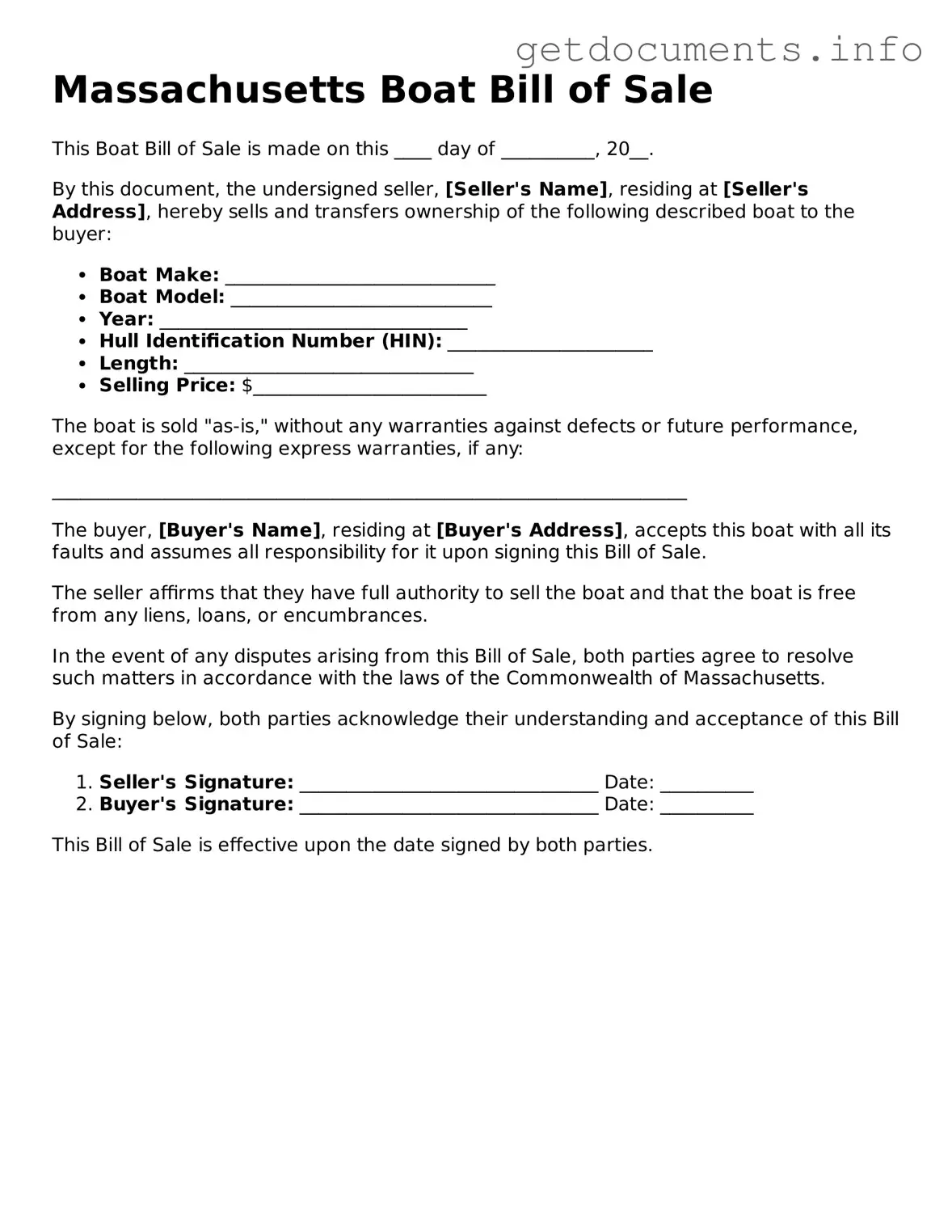Free Boat Bill of Sale Template for Massachusetts
The Massachusetts Boat Bill of Sale form is a crucial document used to record the transfer of ownership of a boat from one party to another. This form not only protects the interests of both the buyer and the seller but also serves as proof of the transaction for registration purposes. If you're ready to make your boat sale official, fill out the form by clicking the button below.
Access Boat Bill of Sale Editor

Free Boat Bill of Sale Template for Massachusetts
Access Boat Bill of Sale Editor
Got places to be? Complete the form fast
Fill out Boat Bill of Sale online and avoid printing or scanning.
Access Boat Bill of Sale Editor
or
⇩ PDF File
